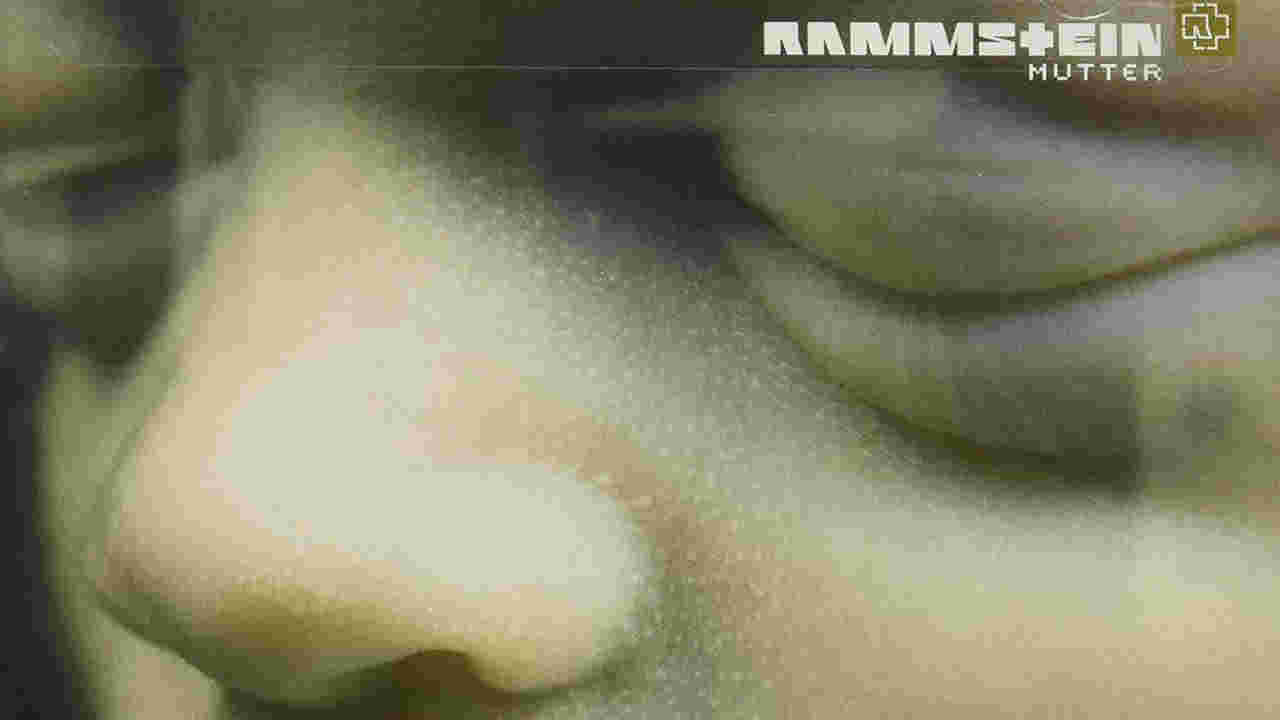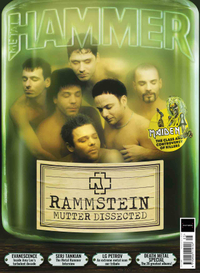“Mutter (‘Mother’) takes us on a journey from cradle to grave, stopping off to take in love, sex and politics. There are references to German literature throughout Rammstein’s songs, and Mutter is set in the world of the 19th century – a time when the idea of children as innately innocent came to be established; when the Brothers Grimm collected fairy tales rife with violence, oppression, and suffering. It was also the heyday of Dark Romanticism and the Gothic, exploring the supernatural, evil and the grotesque. It is the stuff of children’s (and adults’) nightmares.
“First track Mein Herz Brennt (‘My Heart Is Burning’) begins by quoting Sandmännchen, a German children’s TV show. The Little Sandman of the title is from a much older story, best known in its 19th-century retelling by ETA Hoffmann. In this version, he steals children’s eyes. Spieluhr (‘Music Box’) is based around the Gothic preoccupation with being buried alive. Feuer Frei! (‘Fire At Will’) plays with different meanings of fire, including the proverb ‘gebranntes Kind scheut das Feuer’ (‘the burnt child dreads the fire’, or as our tamer English version has it, ‘once bitten, twice shy’). The lyrics of Sonne (‘Sun’) have nothing to do with fairy tales (it was originally written as a Russian boxer’s entry music), but in the video the band serve a drug-addled Snow White.
“There’s also a lot of sex: the perfunctory kind in Rein Raus (‘In, Out’), and total self-love in Zwitter (‘Hermaphrodite’). Nebel (‘Fog’), features echoes of poets Friedrich Hölderlin and Bertolt Brecht. Read the title backwards and you get ‘Leben’ (‘Life’). Links 2 3 4 (‘Left 2 3 4’) famously addressed accusations that Rammstein were neo-fascists and plays on Brecht’s Einheitsfrontlied (‘United Front Song’), written to rally and unite left-wingers after the Nazis took power.”
“The title track is most rooted in the world of the Gothic and the fairy tale. Mothers are absent, children abandoned. We meet a figure ‘conceived in hate and without seed/semen’, without a belly button (like Adam), never suckled. It might be a comment on human cloning, or the bandmembers’ own relationships with their mothers. There are also echoes of Mary Shelley’s Frankenstein, originally published with the subtitle ‘The Modern Prometheus’, referring to the original pyromaniac who, in Greek mythology, defied the gods by stealing fire. Rammstein’s shows use grandiose fire effects and the word ‘fire’ is among the most used in their lyrics.
“The song’s narrator is fixated on his absent mother: he both yearns for her and wants to poison and then drown her. The creature has a birthmark (literally a mother’s mark: ‘Muttermal’), sometimes seen as referring to ex-USSR premier Mikhail Gorbachev: indeed, the tortured relationship between offspring and parent has been read as a symbol for East Germany and/or Mother Russia. Given that Mutter came out a decade after German reunification, this makes sense – even more so after you see the video for 2019’s Deutschland and its focus on German identity. That video also links directly to this album, when a piano version of Sonne plays over the end credits.
“All these ideas make sense, but Rammstein’s lyrics are not there to be decoded. Like good poetry, they are open, and you bring your own experiences and ideas. I can’t listen to Mutter – and especially the line ‘In ihren Lungen wohnt ein Aal’ (‘an eel is living in her lungs’) – without thinking about Günter Grass’s 1959 novel The Tin Drum, in which the central character’s pregnant mother dies from eating grotesque quantities of fish, after she sees eels swarming a dead horse’s head on a beach. Mutter leaves you with the sense that, sometimes, the nightmares begin when you wake up.”
The brand new issue of Metal Hammer, featuring Rammstein on the cover, is out now.


